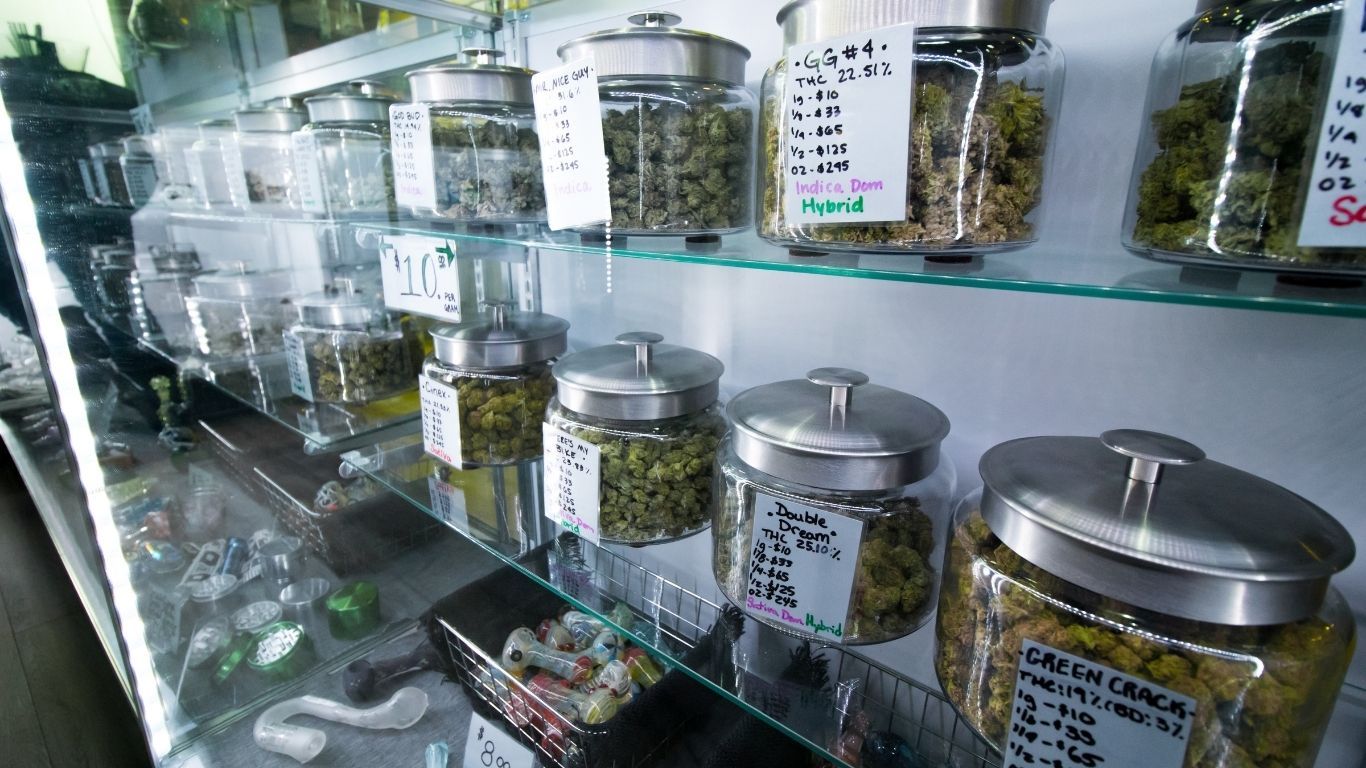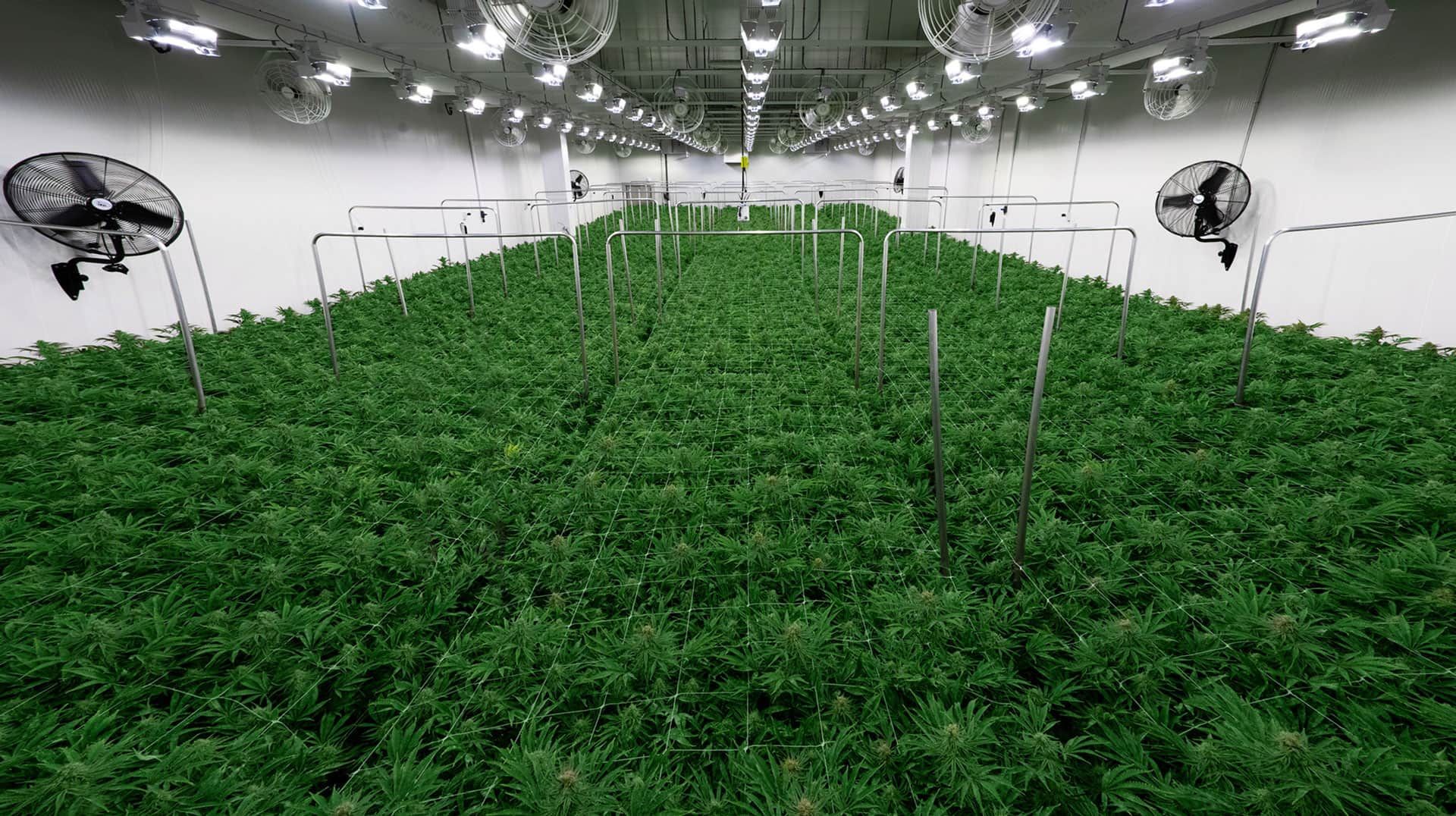
Most legal experts and cannabis operators believe federal legalization will come to the United States soon. How and when it arrives remains up for debate, as does the impact on state markets.
Much is left to be determined concerning federal regulations, including what a federal legalization bill would include. While some see benefits for the nascent space, other legal experts and business leaders worry the impact could affect supply chains, leaving several state markets unable to compete.
Federal Reform Date Uncertain, Incremental Progress Expected
Jon Robbins, cannabis practice chair at law firm Akerman LLP, anticipates that federal reform could come as early as next year.
One of the biggest problems facing the cannabis industry is the difficulty in securing a bank account, financing, or a traditional loan.
Jon Robbins, Akerman LLP
Despite late January statements from Senate Majority Leader Chuck Schumer, who said cannabis bills were being merged together as one legalization effort, most believe federal reform will be incremental.
Robbins sees legalization coming in as piecemeal. He expects financing and capital as the first issue addressed. “One of the biggest problems facing the cannabis industry is the difficulty in securing a bank account, financing, or a traditional loan,” stated Robbins.
Once clarified, Robbins anticipates social justice reform next. Calling the war on drugs, particularly minorities, Robbins calls the ongoing practice “astronomically unfair and absolutely inequitable”.
Patricia Baldwin Gregory, General Counsel for Pennsylvania brand Keystone Canna Remedies, isn’t as certain. Gregory noted ongoing reluctance and lukewarm sentiments from President Biden as concerns.
“I believe the pressing issues which require reform can be addressed short of full federal legalization,” Gregory stated.
She expects banking reform and decriminalization to possibly pass, citing recent statements from banking committee Chairman Senator Sherrod Brown, who hopes to see the two issues passed in one bill. If that outcome plays out, Gregory expects lawmakers to shift focus towards other bipartisan cannabis issues. She mentioned expanded research, arrest record expungement, tax reform, rescheduling and descheduling all as possibilities.
The cannabis law experts offered various outcomes for how legalization may impact states. Robbins sees states continuing to have a say in the matter. With the states building the cannabis market independently, Gregory sees each market having a vested interest in protecting the industry within its borders.
“I think this is the biggest impediment to full legalization and the resulting interstate commerce,” Gregory said. Using the Northeast markets as an example, Gregory said the region would find itself at a disadvantage if in-state dispensaries could buy products from western states at a reduced cost, particularly from outdoor grows.
Under this potential scenario, Gregory forecasted that the Northeast might see a loss of grower operations, jobs and revenues.
Growers And Operators Remain Uncertain On Legalization Roadmap
Most cannabis operators, too, believe that the U.S. will see incremental reform–which remains up for debate.
Oregon-based Kanna-Wise Master Grower Bill Cook remains astounded that federal legalization isn’t a reality. Still, he isn’t surprised the Feds continue to hold off on its passage due to the revenues brought in by the war on drugs. Despite the overwhelming support from the public, Cook said, “the dark side isn’t going to give up their easy meals without a fight.” He expects lobbying efforts to continue to roll out as stall tactics against federal legalization.
Several working the space noted their concern for any regulatory movements in the Biden administration’s early months or years.
Zachary Pitts, CEO and founding partner of California-based e-commerce and delivery brand Ganja Goddess, said he is apprehensive of any significant reform before the 2022 midterm elections.
However, he has learned that reform happens in rapid spurts and languishes for periods at a time. “There tends to be sudden leaps and bounds in legalization and then big slowdowns while the detailed rules and regulations of cannabis business get worked out,” said Pitts.
Morgan Fox, Media Relations Director and Committee Manager at the National Cannabis Industry Association (NCIA), agreed that politics can often shift unpredictably on Capitol Hill. Fox elaborated, “Congressional politics are unpredictable, and a lot of things could happen in the near future that could delay or jeopardize legalization efforts at the federal level.”
As such, Fox said it is vital to keep working to support policy reform efforts. He, too, expects incremental action to be the course of legalization, with efforts beginning in three to four years.
Market Impact Remains Up For Debate
Legal experts and operators offered varied possible impacts on the market if federal legalization were to become a reality.
Akerman’s Robbins sees a dramatic positive impact for plant-touching and ancillary companies. Noting the current disconnect between state and federal laws, Robbins described how he expects legalization to allow operators access to banking and interstate commerce.
NCIA’s Fox mentioned similar positives while highlighting possible benefits like lower federal taxes, uniform regulations and access to federal support programs.
He noted that some production methods and practices used in certain states could end up restricted without going into specifics. Despite possible restrictions, he sees the market continuing to develop and thrive despite its obstacles. “The cannabis industry is nothing if not adaptable,” added Fox.
Others offered potential drawbacks. Keystone Canna Remedies’ Gregory said that consolidation could lead to growers being without cultivation or processing facilities in states where its products sell.
She noted that certain states would likely take over the market’s demand as well. “Cannabis from western states would flood the Northeast and Midwest and jeopardize the grower operations in those states,” posited Gregory.
Kanna-Wise’s Cook pushed back on lower taxes, instead believing that additional excess taxes on the end product are likely. He worries that monopolies could take shape, noting many East Coast markets that limit licenses and stifle free-market competition. If federal legalization were to pass, he expects established markets to become the dominant players. That said, the uncertainty of the laws leaves much to be determined.
“If we are lucky, federal ‘laws’ will align with the more ‘liberal’ states,” stated Cook.
Smoke Wallin, chairman and chief executive officer of California and Kentucky-based Vertical Wellness, sees industry regulations playing out like another industry he’s experienced in, alcohol.
He sees states being left to choose aspects of sales, allowable consumables and distribution, allowing for an overlay with federal law and state regulations. Wallin also believes that state interests will shape market regulations. He used Ohio businesses as an example, predicting that its market wouldn’t want to see his lower-cost, high-quality California cannabis sold across state lines. He expects fights before any rules like interstate commerce pass–which he assumes to be years away.
“Anyone that thinks it’s going to be smooth sailing and… create some magical national market and ignore the state laws, I think is absolutely mistaken,” stated Wallin.












